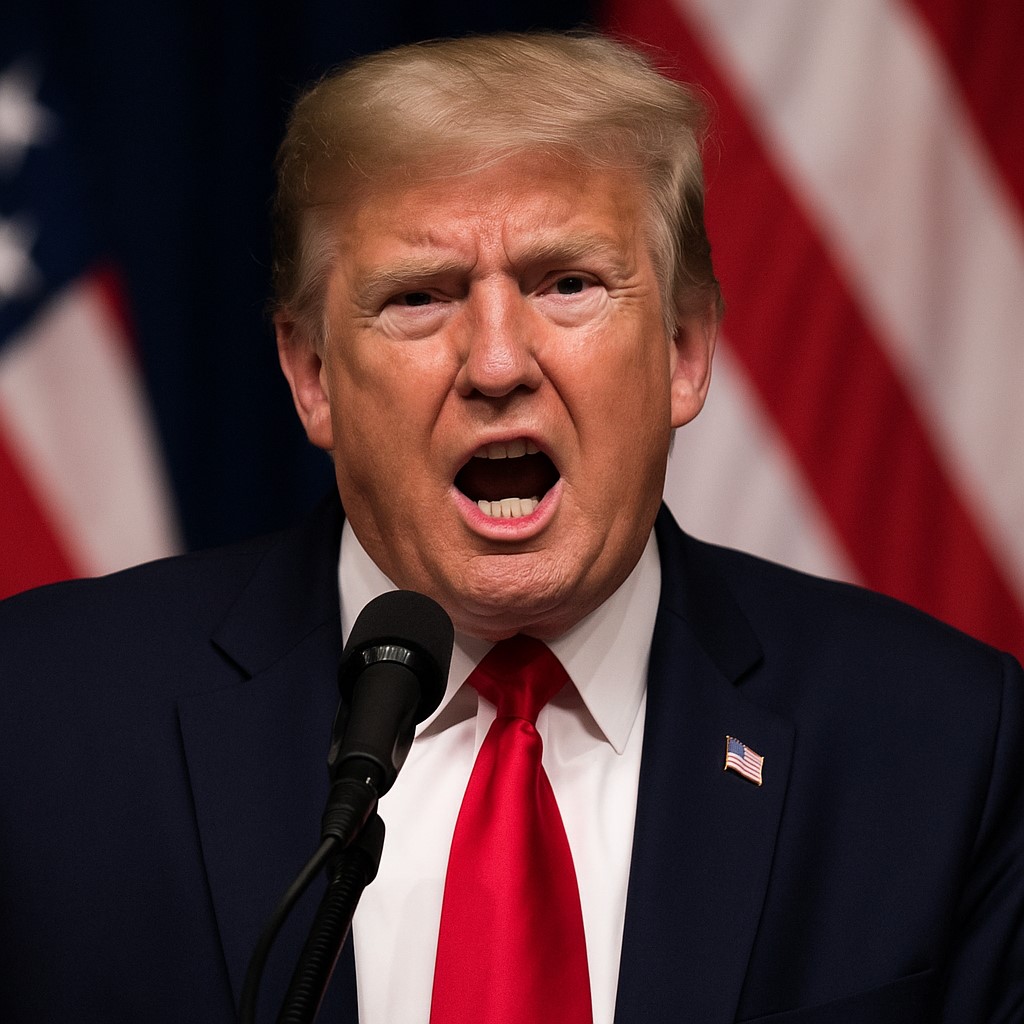
A federal court has just halted one of Donald Trump’s most aggressive economic initiatives: sweeping tariffs imposed under the banner of national emergency. The decision, handed down by the U.S. Court of International Trade in V.O.S. Selections, Inc. v. United States on May 28, 2025, invalidated the tariffs on the grounds that they exceeded the scope of the International Emergency Economic Powers Act (IEEPA). But is the court’s interpretation right? Or was it legislating from the bench?
Trump’s team claims the law is on his side. And they’re probably correct.
The Legal Framework: What Whitman Tells Us
In evaluating whether the President exceeded his authority, the analysis starts with Whitman v. American Trucking Ass’ns, 531 U.S. 457 (2001). That decision reaffirmed the judiciary’s longstanding reluctance to interfere with broad delegations of authority from Congress to the executive branch:
“In the history of the Court we have found the requisite ‘intelligible principle’ lacking in only two statutes, one of which provided literally no guidance for the exercise of discretion, and the other of which conferred authority to regulate the entire economy on the basis of no more precise a standard than stimulating the economy by assuring ‘fair competition.’ ”
Id. at 474.
The Whitman Court then went on to observe that it had already allowed such a delegation of powers in the context of fixing the prices of commodities, which is very similar to imposing tariffs on goods. Specifically, Whitman recognized that, in Yakus v. United States, 321 U.S. 414, 420, 423–426, (1944), the Court permitted Congress to delegate fixing the prices of commodities, the sole limitation being that the levels were “generally fair and equitable.” Whitman at 474.
Indeed, the Supreme Court concluded:
“In short, we have almost never felt qualified to second-guess Congress regarding the permissible degree of policy judgment that can be left to those executing or applying the law.”
Id. at 474-75.
In other words, if Congress gives the President a broad mandate and articulates any guiding principle at all, the courts generally won’t intervene.
Trump Followed the Statute to the Letter
50 U.S.C. § 1701 is the gateway to presidential power under IEEPA. It authorizes the President to act when there is an “unusual and extraordinary threat” originating “in whole or substantial part outside the United States” that affects national security, foreign policy, or the economy. Trump did exactly what the statute required: he issued formal declarations of national emergency, citing both persistent trade deficits and illicit fentanyl trafficking as the triggering threats.
Critics may scoff at the justification, but legally, the bar is not particularly high. The statute places the declaration squarely within the President’s discretion, so long as the predicate conditions are acknowledged.
50 U.S.C. § 1702(a)(1)(B) then gives the President the power to:
“[I]nvestigate, block …, regulate, direct and compel, nullify, void, prevent or prohibit, any … importation or exportation of … any property in which any foreign country or a national thereof has any interest[.]”
This language is stunningly broad. It clearly encompasses tariffs, which are a form of regulation on importation. As an appellate attorney would note, the issue is not whether one likes or dislikes the President, but whether he acted within statutory bounds. And here, the statute is more than clear.
Trump’s legal team anchored their actions in Executive Orders 14193, 14194, and 14195, declaring emergencies tied to fentanyl and non-reciprocal trade practices. They further referenced Executive Order 14257, imposing a 10% reciprocal tariff under IEEPA authority. The foundation was laid. The statutory trigger was satisfied, and the regulatory action was plainly within the scope granted by Congress.
The Counterargument: Overreach and the Courts as Gatekeepers
Opponents argue that IEEPA was never intended to serve as a blank check for economic protectionism. They point to the requirement that the threat be “unusual and extraordinary” and argue that Trump stretched this to cover routine trade disputes and general drug policy. In their view, the emergency declarations were manufactured pretexts, not genuine national security crises.
The court in V.O.S. Selections embraced this interpretation, finding the tariffs untethered to a valid threat and therefore in excess of statutory authority. Some may also cite the “major questions doctrine,” insisting that Congress must speak clearly when authorizing executive action with vast economic impact.
But this reasoning collapses when applied to the actual text. IEEPA already speaks broadly. It delegates expansive authority with full knowledge of the scope. If Congress meant to prohibit economic actions like tariffs, it could have said so. It didn’t.
Why Trump Is Probably Right
Textually, Trump’s position is strong. He identified a foreign-based threat, declared an emergency, and imposed restrictions squarely within the powers authorized by 50 U.S.C. § 1702. This is exactly the type of executive action that Whitman protects.
Functionally, Congress retains oversight. If it believes the President has overstepped, it can pass legislation limiting or revoking the delegation. The appropriate remedy for perceived abuse is political, not judicial. Otherwise, unelected district judges become de facto lawmakers.
And perhaps most critically, today’s Supreme Court is dominated by justices with a textualist bent. If this case reaches their docket, they’re likely to ask a simple question: What does the statute say? And the answer—not what pundits think it ought to say, but what it actually says—favors Trump.
In the end, the law is what it is. And under IEEPA, the law probably lets Trump do exactly what he did.
Image Credit: OpenAI DALL-E
 Law Office of Jason Ostendorf LLC
Law Office of Jason Ostendorf LLC